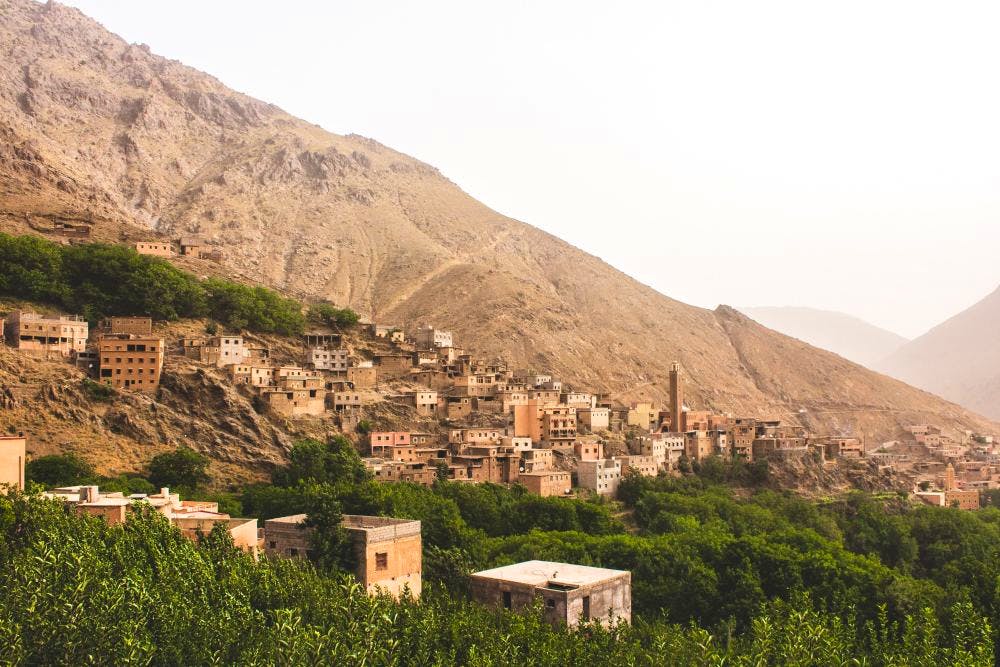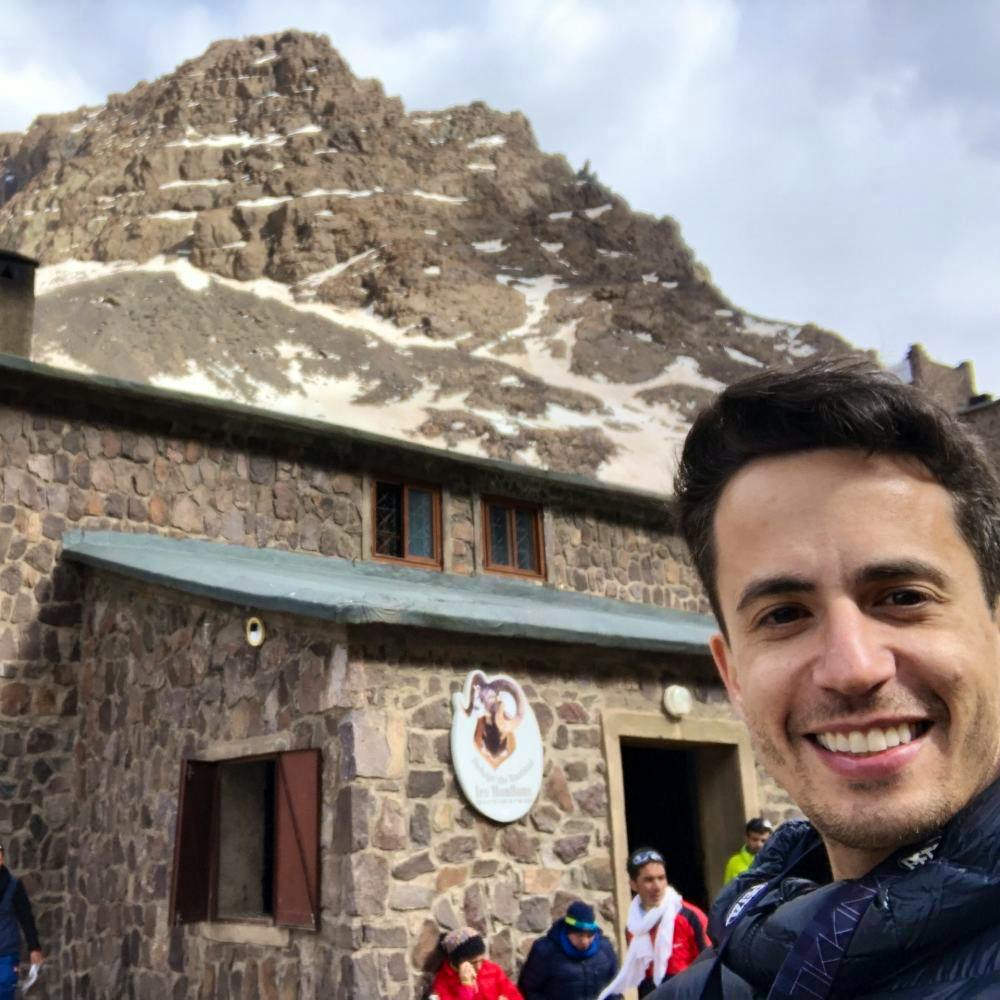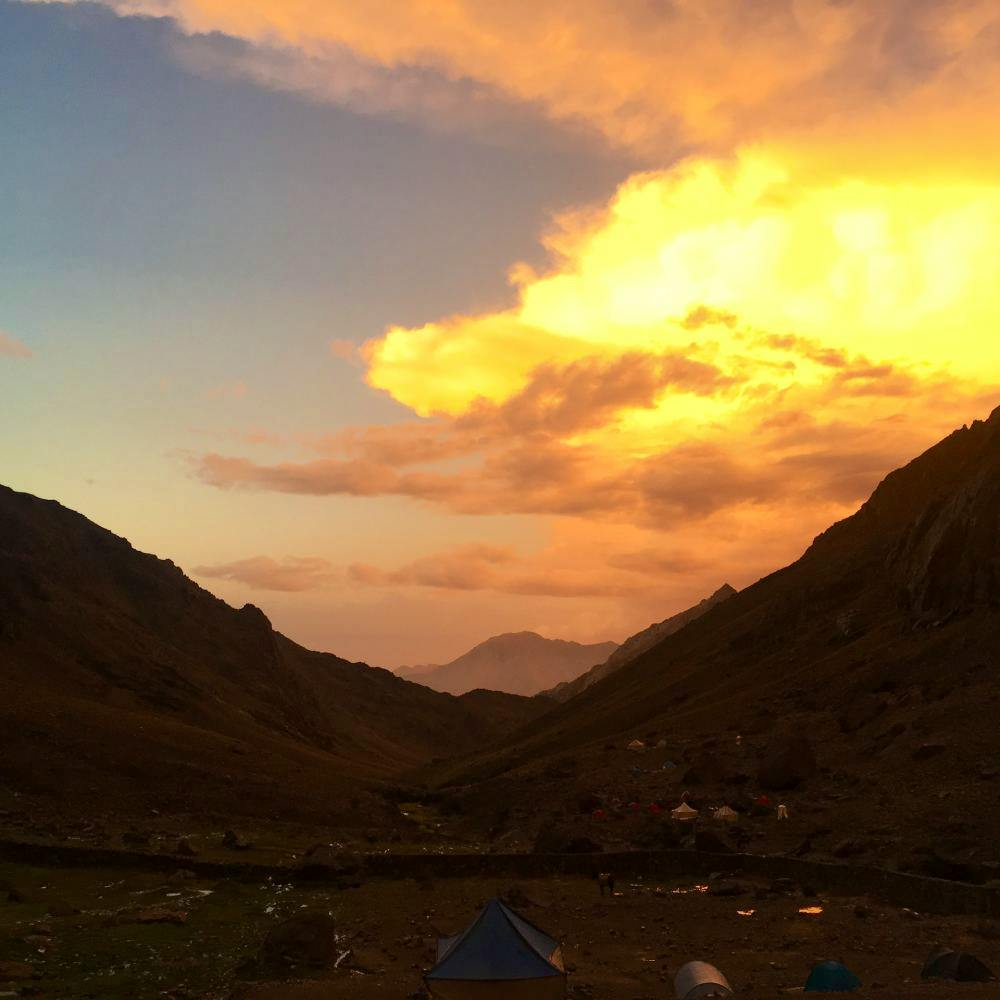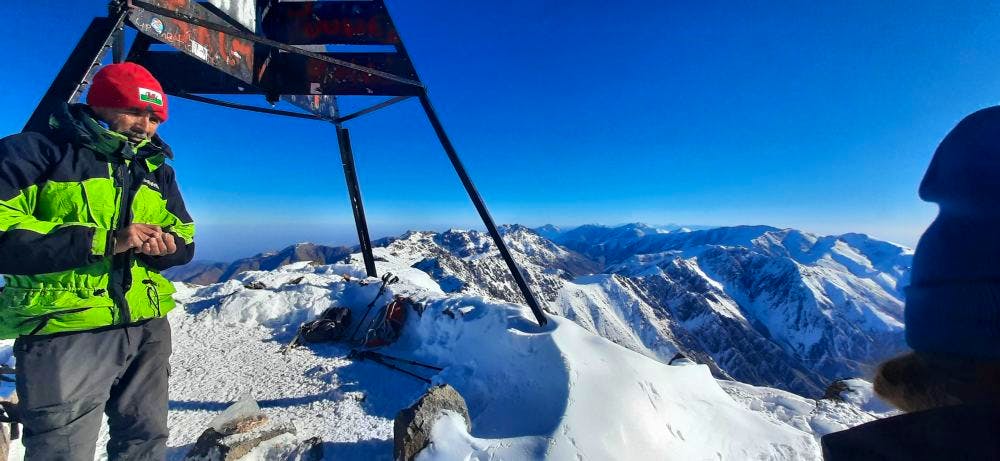How Long Does it Take to Climb Mount Toubkal (+ What to Expect)
Ever wondered how long to climb Mount Toubkal, the towering peak in the Atlas Mountains, Morocco? You're not alone. This achievable summit is the main Morocco hiking destination for thousands of budding mountaineers each year.
This guide is your ultimate resource for understanding the time it takes to reach the top. We'll also throw in some tips, and trekking essentials for this unforgettable adventure.
How Long Does it Take to Climb Mount Toubkal?
The typical Toubkal ascent, whether in summer or winter, usually spans 4 to 5 days. This duration is usually around two full days of hiking and includes your journey starting and ending in Marrakech.
The time can vary based on the season. Winter climbs require additional time for acclimatisation and are generally more challenging due to snow and ice conditions.

The Toubkal Trek Duration: A Step-by-Step Guide
Let's take a deep dive into the duration of this epic trek.
Starting Point: Marrakech
Marrakech is the vibrant, bustling city that serves as the launch pad for most Mount Toubkal adventures. But why Marrakech, you ask? Well, Marrakech offers a taste of Moroccan culture that perfectly complements the natural beauty you'll encounter on the mountain.
Note: There are plenty of places to visit in Marrakech that make it worth extending your trip on either end.
Getting to Imlil
You'll typically drive from Marrakech to Imlil, the small village that acts as the gateway to Mount Toubkal. This drive is about 1.5 hours long, and it's usually included in your trekking package. The road winds through scenic landscapes, offering glimpses of the Atlas Mountains as you approach Imlil.

Prepping in Imlil
Once in Imlil, you'll have time to acclimatise and prepare for the trek ahead. It's a good idea to double-check your gear and get a good night's sleep—you'll need the energy for the days to come.
Why Not Start Elsewhere?
While there are other potential starting points, Marrakech offers the best combination of accessibility, amenities, and atmosphere. Plus, it's easier to find trekking packages that include transport to and from the city.
Base Camp: The Refuge
The Refuge de Toubkal, the cosy sanctuary that serves as your base camp for the big ascent. But what exactly can you expect at this High Atlas Mountains accommodation?

Amenities and Atmosphere
The refuge offers basic but comfortable amenities, including bunk beds, communal dining, and even hot showers if you're lucky. It's a place to relax, enjoy a warm meal, and socialise with fellow adventurers.
Time Spent at the Refuge
You'll usually arrive at the refuge on the afternoon of Day 2, after a 6-hour trek from Imlil. Most climbers spend one night here to acclimate and rest up for the summit push. You'll leave early the next morning, aiming to reach the summit around sunrise.
Importance of Acclimatisation
The refuge sits at an altitude of 3,207 meters (10,522 feet), making it an essential stop for acclimatisation. Spending a night here helps your body adjust to the thinner air, reducing the risk of Toubkal altitude sickness during the summit push.

Latest Deals
Pre-Summit Preparations
Before you hit the sack, make sure to prep your gear for the next day. The early morning start means you won't have much time for last-minute adjustments. Double-check your Morocco travel essentials: water, snacks, headlamp, and layers for the changing weather conditions.
The Ascent: Reaching the Summit

The ascent usually starts in the wee hours of the morning, intending to reach the summit around sunrise. It takes about 3-4 hours from the Refuge de Toubkal to reach the summit. The descent back to the refuge will take another 2-3 hours, making the total time for the summit day around 6-7 hours.
The Trail
The trail is well-marked but steep, with a series of zigzags as you approach the summit. While the Mount Toubkal difficulty is real, it's also incredibly rewarding. You'll traverse rocky paths and possibly encounter patches of snow, even in the summer.
What to Expect at the Summit
Once you reach the summit, you'll be greeted with breathtaking panoramic views that make all the effort worthwhile.
On a clear day, you can see across the Atlas Mountains and even catch a glimpse of the Sahara Desert in the distance. Don't forget to snap some photos and maybe even sign the summit book as a memento of your achievement.
Sunrise at the Summit
If you time it right, you'll witness one of the most awe-inspiring sunrises of your life. The sky transforms into a tapestry of colours, casting a magical glow over the surrounding peaks.

Quick Tip: Pack some high-energy snacks like nuts or energy bars to munch at the summit. Trust us, you'll appreciate the extra fuel for the descent.
Altitude, Seasons, and Preparation: The Triple Threat of Toubkal Trekking
When climbing Mount Toubkal, three factors significantly affect the duration of your experience: altitude, seasonal variations, and your own physical and mental preparation. Let's dive into each.
Altitude Considerations
Altitude is a game-changer in mountain climbing, and Toubkal is no exception. Acclimatisation is crucial to avoid altitude sickness, which can manifest as headaches, nausea, and extreme fatigue.
Spending a night at the Refuge de Toubkal (3,207m) helps your body adjust to the thinner air. If you're not well-acclimatised, you may need extra climbing time, potentially extending your trip by a day or two.

Seasonal Variations
The best time to climb Mount Toubkal can vary based on the season. Summer offers more stable weather but can be hot, especially at lower altitudes.
Winter brings snow and ice, requiring additional gear like crampons and ice axes. It also means you'll need more time for acclimatisation and the actual climb. Always check the Toubkal weather forecast and consult local guides for the most current conditions.
Physical and Mental Preparation
A good level of fitness is essential for a successful climb. Cardiovascular exercises like running, swimming, or cycling can help prepare your body for the physical demands.
Mentally, it's crucial to be prepared for the challenges you'll face, from physical exhaustion to rapidly changing weather conditions. Visualisation techniques and mindfulness can help you stay focused and calm during the climb.
Quick Tip: Make sure you have the right gear for the season. In winter, crampons and ice axes are a must, while in summer, moisture-wicking clothing and sun protection are crucial.

Conclusion
Conquering Mount Toubkal is a Morocco adventure that challenges and rewards you equally. From the bustling streets of Marrakech to the serene heights of North Africa's tallest peak, this journey offers a complete experience.
Find your next adventure
Why Skyhook?
Join over 27,000 Skyhook adventurers who've used our platform to book directly with our vetted local guides, at local prices (we never markup).
Expert Local Guides
Experienced local guides, handpicked by us.
Best Prices
Never pay a markup on the local guide's price.
Exclusive Club
Earn loyalty rewards every time you travel.
Great Social Vibes
Small group tours provide a richer experience.
Stellar Feedback
Over 2,800 reviews, average of 4.9/5 stars.












